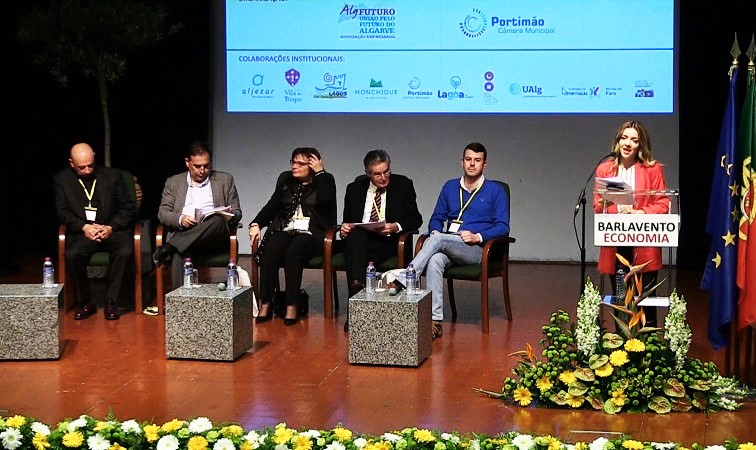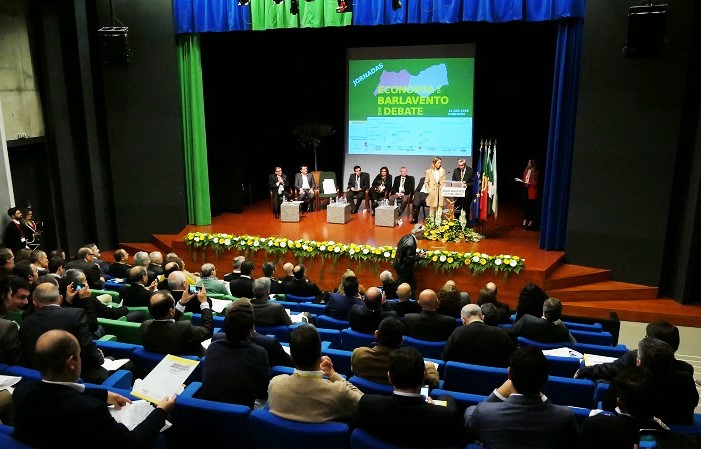 The Jornadas do Barlavento took place this Saturday, April 14, at the Museu de Portimão, and during the works, the «wealth of the area» was pointed out, also demanding an «urgent regionalization».
The Jornadas do Barlavento took place this Saturday, April 14, at the Museu de Portimão, and during the works, the «wealth of the area» was pointed out, also demanding an «urgent regionalization».
In order to guarantee greater wealth creation and business profitability in the Algarve, labor in quantity and quality, it is «indispensable to attack seasonality», says Algfuturo.
This was another of the conclusions of the “Economia do Barlavento em Debate” Conference. The “much wealth already produced in Barlavento with 30 to 40% in various indicators, the enormous potential and the associative and business vitality” of the area was also demonstrated.
Therefore, «it was pointed out as relevant to prepare a Program for the Promotion and Capture of Investments for Barlavento».
 Present at this initiative were José Apolinário, Secretary of State for Fisheries, Paulo Águas, rector of the University of Algarve, Francisco Serra, president of the Algarve's Regional Coordination and Development Commission (CCDR), Jorge Botelho, president of AMAL – Algarve Intermunicipal Community and Desidério Silva, president of the Algarve Tourism Region.
Present at this initiative were José Apolinário, Secretary of State for Fisheries, Paulo Águas, rector of the University of Algarve, Francisco Serra, president of the Algarve's Regional Coordination and Development Commission (CCDR), Jorge Botelho, president of AMAL – Algarve Intermunicipal Community and Desidério Silva, president of the Algarve Tourism Region.
Also present were mayors, 25 presidents of associations, elements of the GNR, PSP and Navy, senior officials of the Central Administration, regional directors and ISMAT and Piaget Institute, Hélder Carrasqueira, director of the Superior School of Hotel Management and Tourism (ESGHT), Pedro Ornelas, president of the Academic Association of the University of Algarve (AAUAlg).
A ceremony was held in homage to world bodyboard champion Joana Schenker, from the Algarve, and tributes were also paid to Carlos Silva e Sousa, former mayor of Albufeira, and António Cândido Glória, a businessman from Porto.
For the whole of the Algarve, the tables of the six panels with fifty speakers and an audience of around two hundred participants were involved in seasonality, issues related to the peripheries, regionalization, oil exploration, community funds, professional training, of work, innovation, health and capital.
After analyzing the extreme seasonality of the Algarve's economy and the fact that it is a peripheral region, the conclusion was drawn that “the problems of decades in the road, railway and maritime connections aggravate business activity”.
“The measures taken to alleviate seasonality in tourism in the off-season have good results, but they need to be complemented with structural programs,” says Algfuturo.
On the other hand, the decentralization at the regional level (regionalization) in the Algarve, with its own competences, elected bodies and an Economic-Social Council was considered of absolute urgency.
 In road mobility, it was considered vital to open the door in “free transit greenway” to residents in the Algarve and Andalusia “in movements between regions, so that the 8,5 million Andalusians are frequent visitors and consumers”.
In road mobility, it was considered vital to open the door in “free transit greenway” to residents in the Algarve and Andalusia “in movements between regions, so that the 8,5 million Andalusians are frequent visitors and consumers”.
In the railroad, the connection to Europe through the Iberian south must advance and in the maritime connections it is urgent to “quickly improve the Port of Portimão and operationalize it Faro, for leisure and cargo traffic'.
During these days, the exploration of hydrocarbons off the coast of Aljezur "deserved vehement opposition".
Official entities were recommended to Brussels to demand greater intensity of support and new policies, «given that over 30 years of funds, large imbalances have not been corrected and the Algarve is the NUT lll region of the continent with the lowest Global Development Index ».
It was also mentioned that in a region in which 70% of the companies' turnover is made by non-resident consumers, the implementation of a General Requalification Plan is justified.


















Comments